The UPSC Optional Syllabus of Anthropology consists of two papers, Paper I and Paper II, each carrying a weightage of 250 marks. Both the papers are divided into different sections, and candidates have to choose one subject from each section. Let us look into the details of each paper.
UPSC Anthropology Optional Syllabus
Anthropology is the scientific study of simple society and human behaviour, which makes it the most humanistic of all sciences and an interesting subject to be chosen as an optional subject in the Civil Services Main Examination.
Anthropology is one of the most popular optional subjects in the UPSC Civil Services Examination. It is a broad science, touching many aspects of biology and primatology, including human evolution, sociology and archaeology. Because it introduces us to the origins and development of human societies and cultures, a multidisciplinary approach is needed to deepen our awareness of society.
| UPSC Anthropology Syllabus | Important Topics |
| Paper I | Meaning, Scope, and Development of Anthropology Relationship with Other Disciplines Main Branches of Anthropology Human Evolution and the Emergence of Man The Nature of Culture and Society Marriage and Family Kinship Economic Organization Political Organization and Social Control Religion Anthropological Theories Culture, Language, and Communication Research Methods in Anthropology Human Genetics Ecological Anthropology |
| Paper II | Evolution of Indian Culture and Civilization Palaeo Anthropological Evidence from India Ethno-Archaeology in India Demographic Profile of India The Structure and Nature of the Traditional Indian Social System Emergence and Growth of Anthropology in India Indian Village Linguistic and Religious Minorities Indigenous and Exogenous Processes of Socio-Cultural Change Tribal Situation in India Problems of Exploitation and Deprivation Social Change and Contemporary Tribal Societies Impact of Religion on Tribal Societies Administration of Tribal Areas Role of Anthropology in Tribal and Rural Development |
UPSC Anthropology Optional Syllabus for Paper I
1.1 Meaning, Scope and Development of Anthropology.
1.2 Relationships with other disciplines: Social Sciences, Behavioural Sciences, Life Sciences, Medical Sciences, Earth Sciences and Humanities.
1.3 Main branches of Anthropology, their scope and relevance :
(a) Social-cultural Anthropology.
(b) biological Anthropology.
(c) Archaeological Anthropology.
(d) Linguistic Anthropology.
1.4 Human Evolution and Emergence of Man :
(a) Biological and Cultural factors in human evolution.
(b) Theories of Organic Evolution (Pre-Darwinian, Darwinian and Post-Darwinian).
(c) Synthetic theory of evolution; Brief outline of terms and concepts of evolutionary biology (Doll’s rule, Cope’s rule, Gause’s rule, parallelism, convergence, adaptive radiation, and mosaic evolution).
1.5 Characteristics of Primates; Evolutionary Trend and Primate Taxonomy; Primate Adaptations; (Arboreal and Terrestrial) Primate Taxonomy; Primate Behaviour; Tertiary and Quaternary fossil primates; Living Major Primates; Comparative Anatomy of Man and Apes; Skeletal changes due to erect posture and its implications.
1.6 Phylogenetic status, characteristics and geographical distribution of the following :
(a) Plio-Pleistocene hominids in South and East Africa—Australopithecines.
(b) Homo erectus : Africa (Paranthropus), Europe (Homo erectus (heidelbergensis), Asia (Homoerectus javanicus, Homo erectus pekinensis.
(c) Neanderthal man—La-chapelle-aux-saints (Classical type), Mt. Carmel (Progressive type).
(d) Rhodesian man.
(e) Homo sapiens—Cromagnon, Grimaldi and Chancelede.
1.7 The biological basis of Life: The Cell, DNA structure and replication, Protein Synthesis, Gene, Mutation, Chromosomes, and Cell Division.
1.8 (a) Principles of Prehistoric Archaeology. Chronology: Relative and Absolute Dating methods.
(b) Cultural Evolution—Broad Outlines of Prehistoric Cultures:
(i) Paleolithic
(ii) Mesolithic
(iii) Neolithic
(iv) Chalcolithic
(v) Copper-Bronze age
(vi) Iron Age
2.1 The Nature of Culture: The Concept and Characteristics of Culture and Civilization; Ethnocentrism vis-a-vis Cultural Relativism.
2.2 The Nature of Society: Concept of Society; Society and Culture; Social Institution; Social groups; and Social stratification.
2.3 Marriage: Definition and universality; Laws of marriage (endogamy, exogamy, hypergamy, hypogamy, incest taboo); Type of marriage (monogamy, polygamy, polyandry, group marriage). Functions of marriage; Marriage regulations (preferential, prescriptive and proscriptive); Marriage payments (bride wealth and dowry).
2.4 Family: Definition and universality; Family, household and domestic groups; functions of family; Types of family (from the perspectives of structure, blood relation, marriage, residence and succession); Impact of urbanization, industrialization and feminist movements on family.
2.5 Kinship: Consanguinity and Affinity; Principles and types of descent (Unilineal, Double, Bilateral Ambilineal); Forms of descent groups (lineage, clan, phratry, moiety and kindred); Kinship terminology (descriptive and classificatory); Descent, Filiation and Complimentary Filiation; Decent and Alliance.
3. Economic Organization: Meaning, scope and relevance of economic anthropology; Formalist and Substantive debate; Principles governing production, distribution and exchange (reciprocity, redistribution and market), in communities, subsisting on hunting and gathering, fishing, swiddening, pastoralism, horticulture, and agriculture; globalization and indigenous economic systems.
4. Political Organization and Social Control: Band, tribe, chiefdom, kingdom and state; concepts of power, authority and legitimacy; social control, law and justice in simple Societies.
5. Religion: Anthropological approaches to the study of religion (evolutionary, psychological and functional); monotheism and polytheism; sacred and profane; myths and rituals; forms of religion in tribal and peasant Societies (animism, animatism, fetishism, naturism and totemism); religion, magic and science distinguished; magico-religious functionaries (priest, shaman, medicine man, sorcerer and witch).
6. Anthropological Theories :
(a) Classical evolutionism (Tylor, Morgan and Frazer)
(b) Historical particularism (Boas) Diffusionism (British, German and American)
(c) Functionalism (Malinowski); Structural—Functionalism (Radcliffe-Brown)
(d) Structuralism (L’evi-Strauss and E. Leach)
(e) Culture and personality (Benedict, Mead, Linton, Kardiner and Cora-du Bois)
(f) Neo—Neo-evolutionism (Childe, White, Steward, Sahlins and Service)
(g) Cultural materialism (Harris)
(h) Symbolic and interpretive theories (Turner, Schneider and Geertz)
(i) Cognitive theories (Tyler, Conklin)
(j) Post-modernism in anthropology.
7. Culture, Language and Communication :
Nature, origin and characteristics of language; verbal and non-verbal communication; social context of language use.
8. Research methods in Anthropology :
(a) Fieldwork tradition in anthropology
(b) Distinction between technique, method and methodology
(c) Tools of data collection: observation, interview, schedules, questionnaire, case study, genealogy, life history, oral history, secondary sources of information, and participatory methods.
(d) Analysis, interpretation and presentation of data.
9.1 Human Genetics: Methods and Application: Methods for the study of genetic principles in man family study (pedigree analysis, twin study, foster child, co-twin method, cytogenetic method, chromosomal and karyotype analysis), biochemical methods, immunological methods, D.N.A. technology and recombinant technologies.
9.2 Mendelian genetics in man-family study, single factor, multifactor, lethal, sub-lethal and polygenic inheritance in man.
9.3 Concept of genetic polymorphism and selection, Mendelian population, Hardy-Weinberg law; causes and changes which bring down frequency-mutation, isolation, migration, selection, inbreeding and genetic drift. Consanguineous and non-consanguineous mating, genetic load, genetic effect of consanguineous and cousin marriages.
9.4 Chromosomes and chromosomal aberrations in man, methodology.
(a) Numerical and structural aberrations (disorders).
(b) Sex chromosomal aberration- Klinefelter (XXY), Turner (XO), Super female (XXX), intersex and other syndromic disorders.
(c) Autosomal aberrations- Down syndrome, Patau, Edward and Cri-du-chat syndromes.
(d) Genetic imprints in human disease, genetic screening, genetic counselling, human DNA profiling, gene mapping and genome study.
9.5 Race and racism, biological basis of morphological variation of non-metric and characters. Racial criteria, racial traits with heredity and environment; biological basis of racial classification, racial differentiation and race crossing in man.
9.6 Age, sex and population variation as genetic markers: ABO, Rh blood groups, HLA Hp, transferring, Gm, blood enzymes. Physiological characteristics level, body fat, pulse rate, respiratory functions and sensory perceptions in different cultural and socio-economic groups.
9.7 Concepts and Methods of Ecological Anthropology: Bio-cultural Adaptations—Genetic and Non-genetic factors. Man’s physiological responses to environmental stresses: hot desert, cold, high altitude climate.
9.8 Epidemiological Anthropology: Health and disease. Infectious and non-infectious diseases, Nutritional deficiency-related diseases.
10. Concept of human growth and Development: Stages of growth—pre-natal, natal, infant, childhood, adolescence, maturity, senescence.
- Factors affecting growth and development are genetic, environmental, biochemical, nutritional, cultural and socio-economic.
- Ageing and senescence. Theories and observations
- Biological and chronological longevity. Human physique and somatotypes. Methodologies for growth studies.
11.1 Relevance of menarche, menopause and other bio-events to fertility. Fertility patterns and differentials.
11.2 Demographic theories-biological, social and cultural.
11.3 Biological and socio-ecological factors influencing fecundity, fertility, natality and mortality.
12. Applications of Anthropology: Anthropology of sports, Nutritional anthropology, Anthropology in designing of defence and other equipment, Forensic Anthropology, Methods and principles of personal identification and reconstruction, Applied human genetics—Paternity diagnosis, genetic counselling and eugenics, DNA technology in diseases and medicine, sero-genetics and cytogenetics in reproductive biology.
UPSC Anthropology Optional Syllabus for Paper II
1.1 Evolution of the Indian Culture and Civilization: Prehistoric (Palaeolithic, Mesolithic, Neolithic and Neolithic-Chalcolithic), Protohistoric (Indus Civilization). Pre-Harappan, Harappan and postHarappan cultures. Contributions of the tribal cultures to Indian civilization.
1.2 Palaeo: Anthropological evidence from India with special reference to Siwaliks and Narmada basin (Ramapithecus, Sivapithecus and Narmada Man).
1.3. Ethno-archaeology in India: The concept of ethno-archaeology; Survivals and Parallels among the hunting, foraging, fishing, pastoral and peasant communities including arts and crafts producing communities.
2. Demographic profile of India: Ethnic and linguistic elements in the Indian population and their distribution. Indian population—factors influencing its structure and growth.
3.1 The structure and nature of traditional Indian social system: Varnashram, Purushartha, Karma, Rina and Rebirth.
3.2 Caste system in India: Structure and characteristics Varna and caste, Theories of origin of caste system, Dominant caste, Caste mobility, Future of caste system, Jajmani system. Tribe-case continuum.
3.3 Sacred Complex and Nature-Man-Spirit Complex.
3.4. Impact of Buddhism, Jainism, Islam and Christianity on Indian society.
4. Emergence, growth and development in India: Contributions of the 18th, 19th and early 20th Century scholar-administrators. Contributions of Indian anthropologists to tribal and caste studies.
5.1 Indian Village: Significance of village study in India; Indian village as a social system; Traditional and changing patterns of settlement and inter-caste relations; Agrarian relations in Indian villages; Impact of globalization on Indian villages.
5.2 Linguistic and religious minorities and their social, political and economic status.
5.3 Indigenous and exogenous processes of socio-cultural change in Indian society: Sanskritization, Westernization, Modernization; Inter-play of little and great traditions; Panchayati Raj and social change; Media and Social Change.
6.1 Tribal situation in India: Bio-genetic variability, linguistic and socio-economic characteristics of the tribal populations and their distribution.
6.2 Problems of the tribal Communities: Land alienation, poverty, indebtedness, low literacy, poor educational facilities, unemployment, under-employment, health and nutrition.
6.3 Developmental projects and their impact on tribal displacement and problems of rehabilitation. Development of forest policy and tribals. Impact of urbanisation and industrialization on tribal populations.
7.1 Problems of exploitation and deprivation of Scheduled Castes, Scheduled Tribes and Other Backward Classes. Constitutional safeguards for Scheduled Tribes and Scheduled Castes.
7.2 Social change and contemporary tribal societies: Impact of modern democratic institutions, development programmes and welfare measures on tribals and weaker sections.
7.3 The concept of ethnicity; Ethnic conflicts and political developments; Unrest among tribal communities; Regionalism and demand for autonomy; Pseudo-tribalism. Social change among the tribes during colonial and post-independent India.
8.1 Impact of Hinduism, Buddhism, Christianity, Islam and other religions on tribal societies.
8.2 Tribe and nation-state—a comparative study of tribal communities in India and other countries.
9.1 History of administration of tribal areas, tribal policies, plans, programmes of tribal development and their implementation. The concept of PTGs (Primitive Tribal Groups), their distribution, and special programmes for their development. Role of N.G.O.s in tribal development.
9.2 Role of Anthropology in tribal and rural development.
9.3 Contributions of anthropology to the understanding of regionalism, communalism and ethnic and political movements.
Tips to Prepare for UPSC Anthropology Optional Syllabus
Here are some tips to prepare for the UPSC Anthropology Optional Syllabus:
Understanding the Syllabus:
- Thorough analysis: Begin by thoroughly analyzing the official UPSC Anthropology Optional Syllabus. Familiarize yourself with each topic in both papers I and II.
- Previous year papers: Analyze previous years’ question papers to understand the pattern, weightage, and specific topics frequently tested.
- Expert guidance: Consider consulting books or online resources by experts in Anthropology to gain insights into strategic preparation.
Building a Strong Foundation:
- Conceptual clarity: Focus on grasping fundamental concepts clearly before moving to advanced topics. Ensure you understand the core theoretical frameworks underlying each section.
- Interlinking concepts: Anthropology emphasizes interconnectedness. Try to relate and integrate various concepts across different sections for a holistic understanding.
- Note-making: Develop concise and well-organized notes with relevant diagrams, flowcharts, and examples for effective revision.
Deepening your Knowledge:
- Textbooks and reference materials: Use standard textbooks recommended by experts and referenced in previous years’ toppers’ strategies. Choose materials that present information clearly and concisely.
- Case studies and current affairs: Integrate case studies and recent developments related to anthropological concepts into your answers for added depth and relevance.
- Anthropological documentaries and podcasts: Consider using multimedia resources like documentaries and podcasts to gain additional perspectives and insights.
Developing Answer Writing Skills:
- Practice with previous year’s questions: Regularly answer questions from previous years’ papers within the stipulated time limit. Analyze your responses and identify areas for improvement.
- Mock tests and feedback: Enroll in a mock test series offered by coaching institutes or online platforms. Seek feedback from mentors to refine your writing style and content.
- Emphasis on clarity and brevity: Aim for clear, concise, and well-structured answers within the word limit. Focus on supporting your points with relevant facts, examples, and theoretical frameworks.
Additional Tips:
- Join online communities or forums: Engage in discussions with other UPSC aspirants preparing for Anthropology to share strategies, clarify doubts, and broaden your understanding.
- Maintain a consistent study schedule: Allocate dedicated time for studying and adhere to a structured schedule to keep yourself motivated and avoid last-minute stress.
- Stay updated with current events: Connect current events and developments in social, cultural, and economic spheres to anthropological concepts to demonstrate a nuanced understanding.
Remember, consistent effort, focused preparation, and strategic planning are key to success in the UPSC Anthropology Optional exam. Good luck!
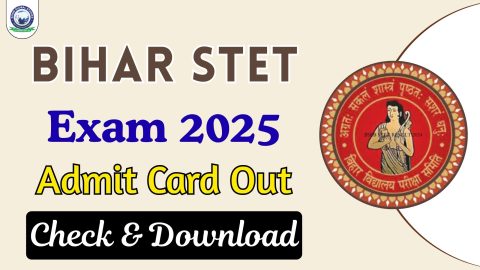
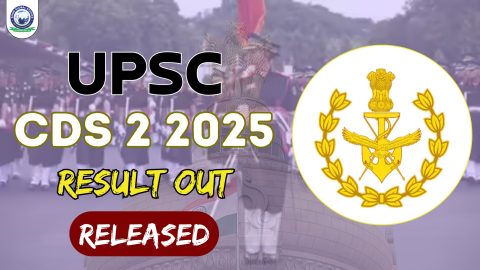

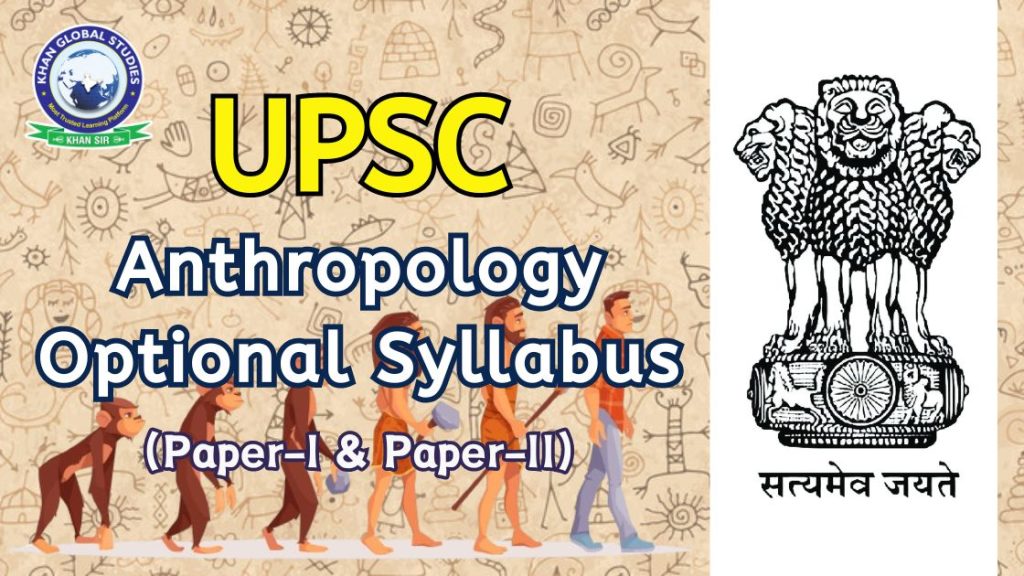
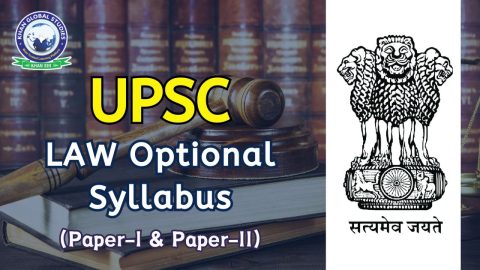
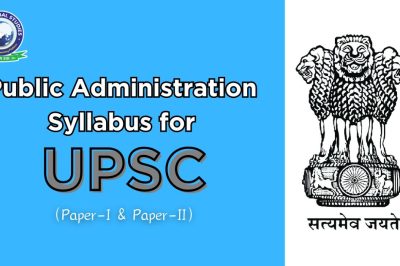
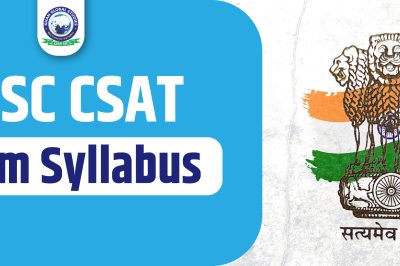

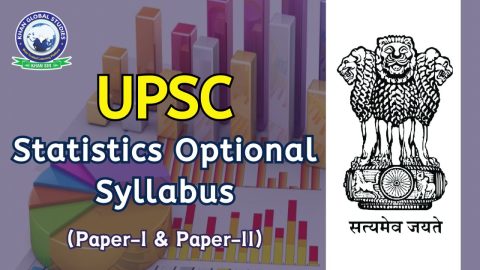
will kgs launch anthropology eng batch soon ? if yes then when it would be launched please launch as soon as possible
Hello Priti, please contact our customer support @ +918757354880 for details. Thanks for connecting with us.